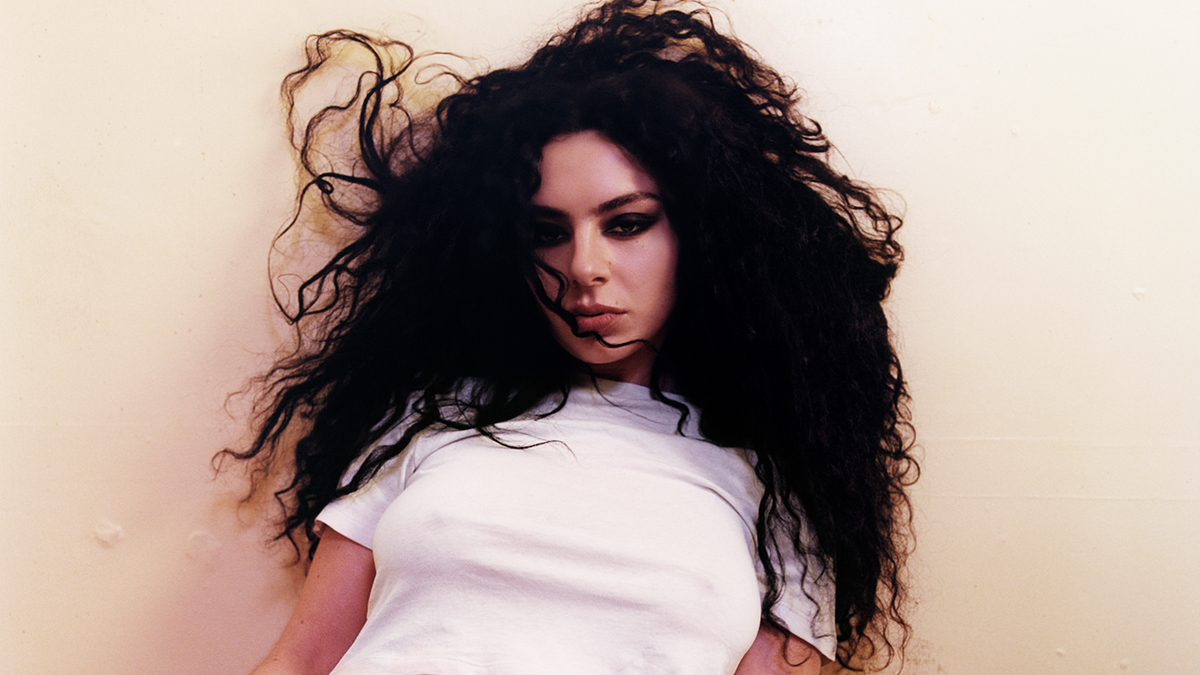“I could sing in tune but now I think I’ve gotten so lazy because I sing with Auto-Tune all the time”: Charli XCX on how a reliance on pitch correction software means that her tuning is now "pretty out, because my ear is so used to leaning in”
“That’s why I only do rap at karaoke,” she says. “Because people are like ‘isn’t she a singer?’ And I’m like, well yeah, but haven’t you heard of Auto-Tune?”

Charli XCX is well-known for her use of Auto-Tune - in fact, you could say that it’s become one of her sonic signatures - but she says that one downside of her reliance on the software is that she now struggles to sing in tune.
“I could sing in tune but now I think I’ve gotten so lazy because I sing with Auto-Tune all the time,” she recently told the Tape Notes podcast. “I never am not singing with Auto-Tune”
The star - who recently released Brat, her critically-acclaimed new album - is happy to admit that that “tuning’s not my forte”, and confesses that “I’m pretty out, because my ear is so used to leaning in.”
“That’s why I only do rap at karaoke,” she says. “Because people are like ‘isn’t she a singer?’ And I’m like, well yeah, but haven’t you heard of Auto-Tune?”

Charli goes on to say that, whether she’s writing, singing live or recording, Auto-Tune is in the picture. “You really get lazy because you can relax into a note rather than being super ‘on,’” she explains. “There are some amazingly technical singers who do sing with Auto-Tune and are still, like, pitch perfect, but that’s not me. I drink and I smoke and I use Auto-Tune - those three things.”
That said, there are occasions when Charli is happy to go without Auto-Tune, but even then, that’s a conscious production choice.
“When something is innately electronic, you then want to find imperfection somewhere else,” says her producer and partner, George Daniel. “So you’re either chasing out-of-tune LFOs, pitching keys or in vocals. Whether it’s some modulation that’s catching your ear that is basically the human element of something that’s innately not real.”
Want all the hottest music and gear news, reviews, deals, features and more, direct to your inbox? Sign up here.
“For Brat I think that’s really important,” continues Charli XCX. “It’s important to have this, like, ‘human’ kind of mistake element happening with the tracks because I think that very much goes with the ethos of the record.”
Last year, musician and YouTuber Rick Beato controversially claimed that Auto-Tune had "destroyed music". However, given how often it's now being used not just to 'correct' vocals but as a creative tool, some would argue that the opposite is true, and that it's actually helped to birth new genres rather than kill any existing ones.
Experimental electronic artist Lisel, for example, told MusicRadar last year that “The Antares Auto-Tune plug-in has become one of my most treasured creative tools, and it is at the basis of most of my compositional work for voices. While my voice is my primary instrument, I really feel like I’ve developed a new instrument that is my voice in relation to the various Auto-Tune plugins and everything they do, and I create work around that specific instrument.”



I’m the Deputy Editor of MusicRadar, having worked on the site since its launch in 2007. I previously spent eight years working on our sister magazine, Computer Music. I’ve been playing the piano, gigging in bands and failing to finish tracks at home for more than 30 years, 24 of which I’ve also spent writing about music and the ever-changing technology used to make it.